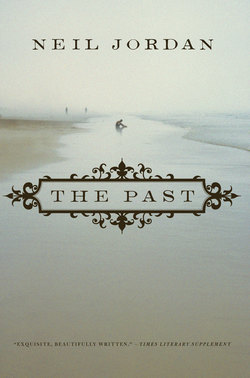Читать книгу The Past - Neil Jordan - Страница 8
Оглавление2
LILI’S HOUSE RISES four storeys, like those hotels. Lili lives on the fourth. There’s a door which I put my shoulder to, then a dim staircase. There’s the smell of moist brickwork, of the canal outside. Memory, she told me once, is mother to the Muses. But what do I know of all those years, of Dev and the Clare election and the Custom House fire? The ashes rose over the city, she told me, of the burnt files of each birth, marriage and death. Then they fell like summer snow, for three days. Lili walked through them, maybe held out her palms, caught the down of her birth-cert on the rim of her schoolgirl bonnet. I would petition her for memories like these. I felt a sharp angle in the banister’s curve. I saw the landing then, and Lili’s room. I saw Lili, by far the oldest thing in that room. When I entered, she turned in her perpetual cane chair. She smiled.
‘UNA WENT THERE,’ she told me, ‘to have the child you want to know all about. She went there because she was pregnant, had got married because she was pregnant, one of those sublime mistakes they made then as well as now. He did the dutiful thing, though I’m sure he loved her. I can’t imagine him not loving anyone and by all accounts she was a beauty then, not the blousy Republican I got to know later. They married and chose that place for their honeymoon. He was from a Redmondite family, a lawyer with that blend of innocence and relentless idealism that was admirable then, really admirable, and that took the Free State to sully it. He was the best of them, by far the best of them, he was marked out for what would happen to him later, I’ve heard that said, having no way of knowing, my only memories of him are in the kindergarten school out near Mount Merrion, he’d come to visit us in his Free State uniform, the darling of the nuns with those glazed eyes that told you precisely how much he hated it, the heavy ridiculous belts and the shoulder pistols, he must have hated it even more than de Valera hated him, he would walk through the classroom in his wide boots, stammer while refusing the nuns’ offer of tea and lift Rene on to his hip. I remember her crying once, with joy at first, and then pain at the buckle of the belt against her backside, his large hands lifting her higher to nuzzle against the shoulder pistol. Then there would be a few words of affection that only demonstrated how little they knew each other when there would be a respectful knock on the school door, the shadow of an N.C.O. outside, and he would have to leave. I learned later it had always been like that, ever since she was old enough to know him, which is the trouble with public men I suppose, especially the kind of public men we had then. But those few brief meetings were enough to convince anyone of his innate goodness, the quiet enigma of him, which I suppose she inherited. And you could see how marriage to Una, who was supposed to be a beauty then, who was pregnant by him, would have been natural to him, an extension of that undifferentiated love with which I imagine he first made her pregnant. But then I could be wrong, we could be all be wrong.
‘All I can really tell you is that they went there, that she was pregnant when they went there and that they stayed nine months. The war had broken out, which would have afforded him an excuse to stay. They would come back, a married couple with a child with a respectable if somewhat fine interval between ceremony and birth. And though I would lay such duplicity at her doorstep, he must have been party to it. The only point behind all this information being the fact that Rene was a love-child—’
